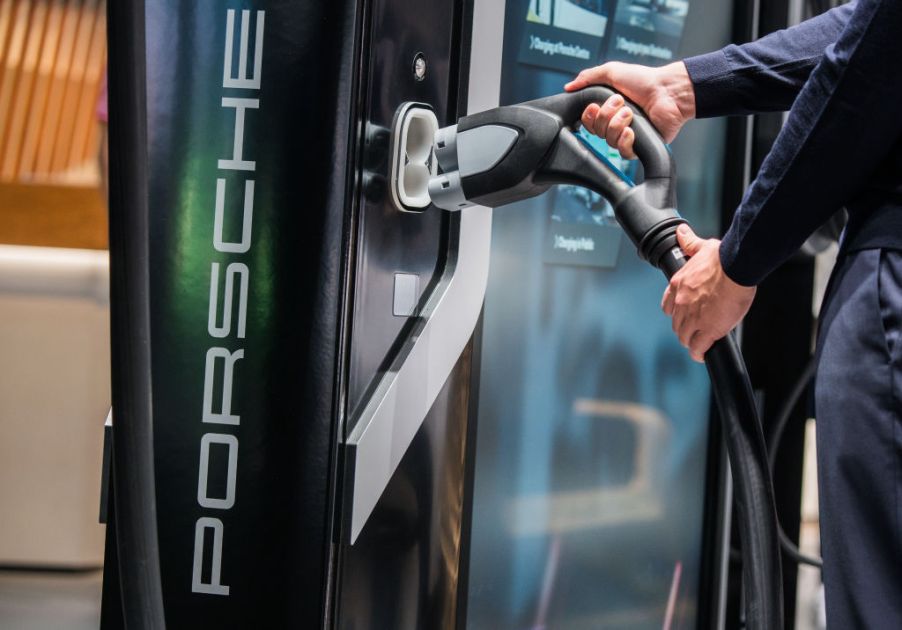
Until People Get Over These Electric Car Myths, Sales Will Suffer
Tesla made history as one of the first electric car manufacturers, but now other automakers are following in its footsteps. While more electric vehicles would make a positive impact on the environment, consumer demand is not very high. According to a recent survey, only 2% of cars sold in the last year were EVs.
Why are electric cars not-so-popular? Ford spokesman Ted Cannis told Medium the problem is not with the vehicles themselves, but rather the misinformation surrounding them. Many customers are not well-educated about electric cars. Here are a few of the most common myths buyers still believe, according to a Ford survey.
Electric cars still need gas
About 42% of Americans still won’t buy electric cars because they think the cars need conventional fuel. In reality, electric cars use no gasoline at all, meaning you won’t have to make any more stops at a gas station or get an oil change every few months.
Instead, electric cars use a battery that supplies electricity to the car’s motor in order for it to run. These batteries can be charged at home or a nearby charging station. Home car-charging stations cost around $700 on average, but a full charge can give you close to 400 miles of uninterrupted driving.
Electric cars aren’t built as well
A staggering 80% of Americans think EVs, even those with all-wheel drive, aren’t built to endure tough weather conditions. In cold temperatures, it’s common for batteries in gas cars to die unexpectedly, which could contribute to this misconception.
However, automakers are aware of these risks and conduct many tests on EV prototypes to ensure the cars can endure extreme conditions. Through a combination of real-world and virtual test tracks, engineers can get the most accurate picture of how the ideal battery must be built for each car.
Electric cars don’t have good performance
The peppiness of EV batteries give the cars better acceleration rates, but 90% of Americans don’t see this as a positive. Perhaps the idea of picking up speed in a self-driving car scares them. However, an EV’s propulsion systems is a new experience compared to a typical gas-operated vehicle. Engineers are constantly running prototypes through simulators to improve the vehicle’s maneuvering and power distribution.
Similarly, 67% of Americans don’t believe an electric vehicle will perform well in the towing department. As Cannis points out, the towing prowess of powerful pickup trucks like the Ford F-150 won’t be affected simply because a different engine is under the hood. In fact, he’s hopeful that EV technology will evolve to the point where towing capacity can be expanded with an EV’s battery motor.
How can automakers educate consumers?
The technology behind electric vehicles is growing, and more automakers want to explore it. However, research and development costs are not cheap, so companies need to know demand is high enough. Ford is doing its best to educate consumers by providing information about EVs and their benefits.
Additionally, the company also released a series on its Youtube channel showcasing demonstrations of electric cars. This way, buyers can see the power and potential of EVs for themselves. Ford believes this will change consumers’ minds and dramatically improve sales.



